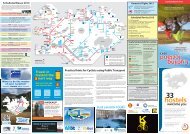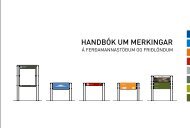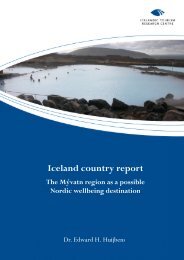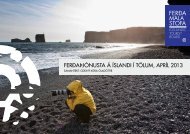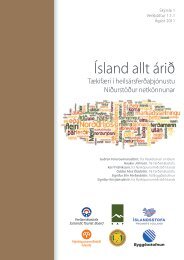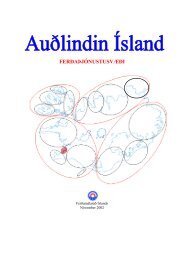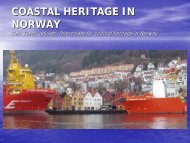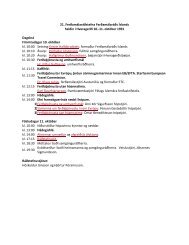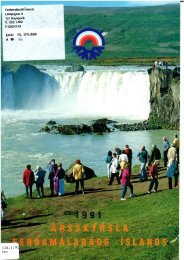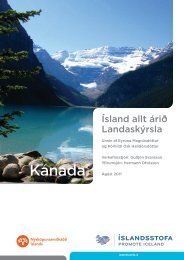Untitled
Untitled
Untitled
Create successful ePaper yourself
Turn your PDF publications into a flip-book with our unique Google optimized e-Paper software.
The end of tourism - we are all tourists now<br />
As stated before, there was a time, before contemporary society with its<br />
modern systems of transportation and mass tourism, when people in<br />
general did not travel very much, and certainly not over very long<br />
geographical distances. To go elsewhere and experience whatever could be<br />
found there was, for the majority of people, not a real option. For them,<br />
those other potential places were in practise clearly separated and<br />
differentiated from their own everyday lives and home environments. In<br />
other words, there was then a much sharper geographical demarcation<br />
between other places there and the everyday life places here.<br />
This pre-modern world and its geography were all to change through<br />
processes of modernity and, notably, the emergence of nation states.<br />
Through various developments, in which technology played a fundamental<br />
role by paving the way for new forms of mobility, the nation became<br />
gradually geographically accessible for its modern citizens. Books and<br />
newspaper became accessible for a wider portion of the populations and<br />
distributed various imaginationings of the near and far. Bicycles, trains,<br />
busses and cars opened up new geographical possibilities for reaching and<br />
encountering other lives and places beyond the home, and so eventually<br />
domestic tourism developed. For international mass tourism aeroplanes<br />
later came to play a similar role in making other places accessible, so that;<br />
in the 1970s it became possible for the swelling ranks of affluent<br />
Americans and Europeans to travel outside their nation states and<br />
geographical regions (Franklin 2003, p. 265).<br />
The development of the modern world and its modern tourism is a<br />
pace with globalisation. In this context it refers to how everyday life in<br />
many societies has increasingly become folded and braided internally and<br />
externally with various tourist/tourism spaces. Keeping in mind that we<br />
here (as elsewhere in this report) do write within the limited frame of a<br />
Western tourism discourse (in relation to the world population, tourism is<br />
still for those affluent), we can say that what was once accessible only<br />
“over there” can now be readily experienced, even inversely in one’s own<br />
neighbourhood. The food once signified as “exotic” and possible to try<br />
only when visiting a distant country can now be bought in the local shop.<br />
As Franklin notes:<br />
61



